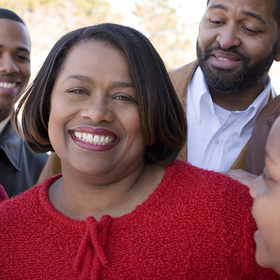Nov. 2017 issue (vol. 22, no. 1)
Read moreSeries: November 2017 • Vol. 22, No. 1
Promoting the resilience of young people in foster care
Two brothers, close in age, had the same difficult childhood. They experienced physical and sexual abuse and lived in violent neighborhoods. Both their parents struggled […]
Read moreResilience: Key concepts
One way to understand the development of resilience is to visualize a balance scale or seesaw (see figure below). Protective experiences and coping skills on […]
Read moreBeing a strong parent, even when you’re stressed
Caring for a child who needs you can be one of the best experiences in the world—but it can also be stressful for you and […]
Read moreResilience is something everyone can build
by Jeanne Preisler • Resilience is not something you have or don’t have. Resilience is something everyone can build. The more tools you have, the […]
Read more





